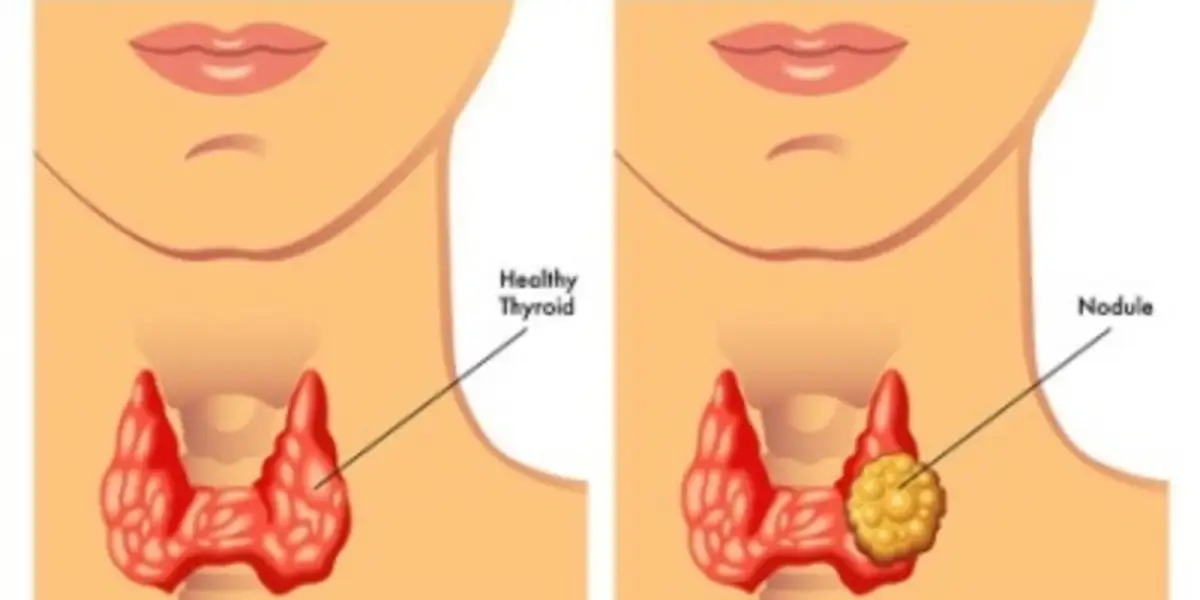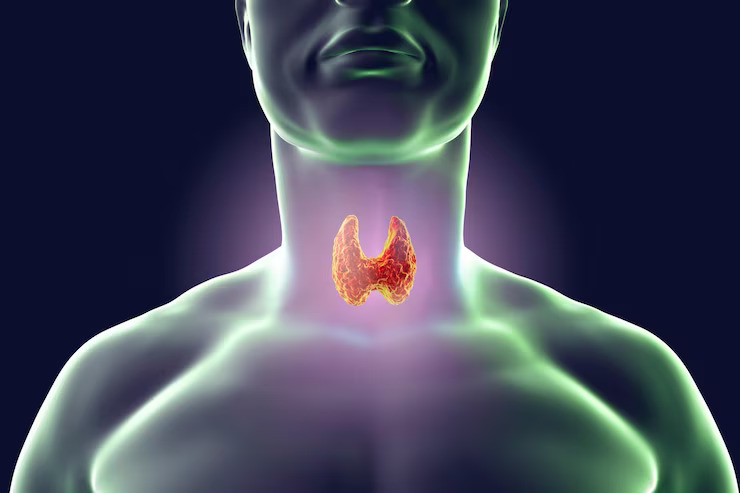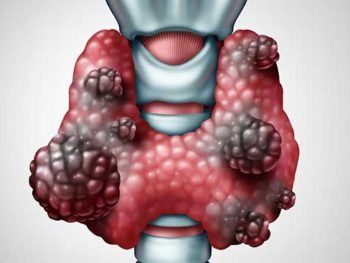Understanding Thyroid Nodules: Causes, Symptoms, Diagnosis, and Treatment
Thyroid nodules are lumps that commonly form within the thyroid gland, which is located at the base of the neck. These nodules are often detected during routine physical examinations or imaging studies performed for other reasons. While the majority of thyroid nodules are benign (non-cancerous), a small percentage can be malignant (cancerous), making their evaluation and management crucial.
Causes of Thyroid Nodules
The exact cause of thyroid nodules is not always clear, but several factors can contribute to their development:
- Iodine Deficiency
Iodine is essential for thyroid hormone production. A deficiency in iodine can lead to an enlarged thyroid gland (goiter) and the formation of nodules. - Overgrowth of Thyroid Tissue
Benign growths, such as thyroid adenomas, can lead to the formation of nodules. These are non-cancerous and usually do not cause serious health issues. - Thyroid Cysts
These are fluid-filled cavities within the thyroid gland. They are usually benign but can occasionally contain solid components that may require further evaluation. - Chronic Inflammation
Conditions like Hashimoto’s thyroiditis, an autoimmune disorder, can cause chronic inflammation of the thyroid gland, leading to the formation of nodules. - Multinodular Goiter
This condition involves an enlarged thyroid gland with multiple nodules. It is usually benign but requires monitoring to ensure it does not lead to other complications. - Thyroid Cancer
Though less common, some nodules can be cancerous. Risk factors for thyroid cancer include a family history of the disease, radiation exposure, and certain genetic syndromes.
Symptoms of Thyroid Nodules
Thyroid nodules are often asymptomatic, meaning they do not cause noticeable symptoms. However, when symptoms do occur, they can include:
- Visible Lump
A noticeable lump or swelling at the base of the neck can be a sign of a thyroid nodule. This lump may move when swallowing. - Difficulty Swallowing or Breathing
Large nodules or multiple nodules can press on the esophagus or trachea, causing difficulty swallowing or breathing. - Pain or Discomfort
Some nodules may cause pain or a sensation of fullness in the neck. - Hoarseness
Nodules that press on the vocal cords can cause changes in voice, such as hoarseness. - Hyperthyroid Symptoms
In cases where the nodule produces thyroid hormones (autonomous functioning thyroid nodule), symptoms of hyperthyroidism, such as weight loss, rapid heartbeat, and nervousness, may occur. - Hypothyroid Symptoms
If the nodule is part of a condition that affects overall thyroid function, symptoms of hypothyroidism, such as fatigue, weight gain, and depression, may be present.
Diagnosis of Thyroid Nodules
Diagnosing thyroid nodules involves several steps:
- Physical Examination
A healthcare provider will palpate the neck to feel for any lumps or irregularities in the thyroid gland. - Ultrasound
An ultrasound is often the first imaging test used to evaluate thyroid nodules. It provides detailed images of the thyroid gland and can help determine the size, shape, and composition of the nodule (solid, cystic, or mixed). - Fine-needle aspiration (FNA) Biopsy
A fine-needle aspiration biopsy may be carried out if an ultrasonography shows a worrisome nodule. This involves using a thin needle to collect a sample of cells from the nodule, which are then examined under a microscope to determine if they are benign or malignant. - Blood Tests
Blood tests can measure levels of thyroid hormones (T3 and T4) and thyroid-stimulating hormone (TSH) to assess thyroid function. Elevated or suppressed TSH levels can provide clues about the nature of the nodule. - Radioactive Iodine Scan
In some cases, a radioactive iodine scan may be used to determine if the nodule is “hot” (producing excess thyroid hormone) or “cold” (not producing hormone). Hot nodules are usually benign, while cold nodules have a higher likelihood of being cancerous.
Treatment of Thyroid Nodules
The treatment of thyroid nodules depends on their nature and associated symptoms:
- Watchful Waiting
For benign nodules that are not causing symptoms, a common approach is watchful waiting. This involves regular monitoring with physical exams and ultrasound to ensure the nodule does not grow or change in a way that suggests malignancy. - Thyroid Hormone Suppression Therapy
In some cases, thyroid hormone medication may be prescribed to suppress TSH and potentially shrink the nodule. This approach is more common in cases of multinodular goiter or nodules associated with Hashimoto’s thyroiditis. - Radioactive Iodine Therapy
For hyperfunctioning nodules causing hyperthyroidism, radioactive iodine therapy can be used to destroy overactive thyroid tissue, reducing hormone production and shrinking the nodule. - Surgery
Surgical removal may be necessary for nodules that are cancerous, suspicious for cancer, or causing significant symptoms. The extent of surgery can range from removing the nodule (lobectomy) to removing the entire thyroid gland (total thyroidectomy). - Ethanol Ablation
For cystic nodules, ethanol ablation can be an effective treatment. This involves injecting ethanol into the cyst to shrink it. - Laser or Radiofrequency Ablation
Minimally invasive procedures like laser or radiofrequency ablation can be used to reduce the size of benign nodules that are causing symptoms.
Conclusion
Thyroid nodules are a common condition, often detected incidentally during routine medical examinations. While most nodules are benign and asymptomatic, it is essential to properly evaluate and monitor them to rule out malignancy and manage any associated symptoms. Advances in diagnostic techniques and treatment options have significantly improved the management of thyroid nodules, ensuring better outcomes for patients. If you suspect you have a thyroid nodule or are experiencing related symptoms, it is important to consult with a healthcare provider for a thorough evaluation and appropriate management.








